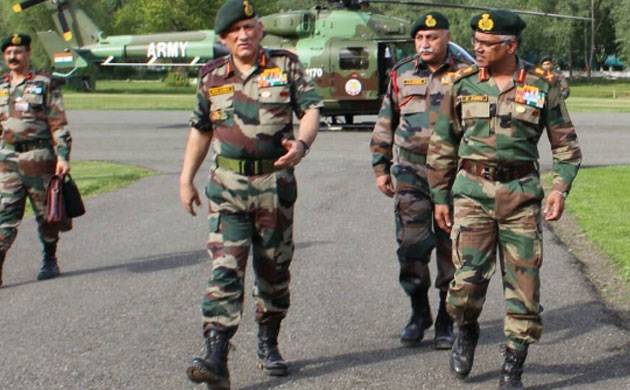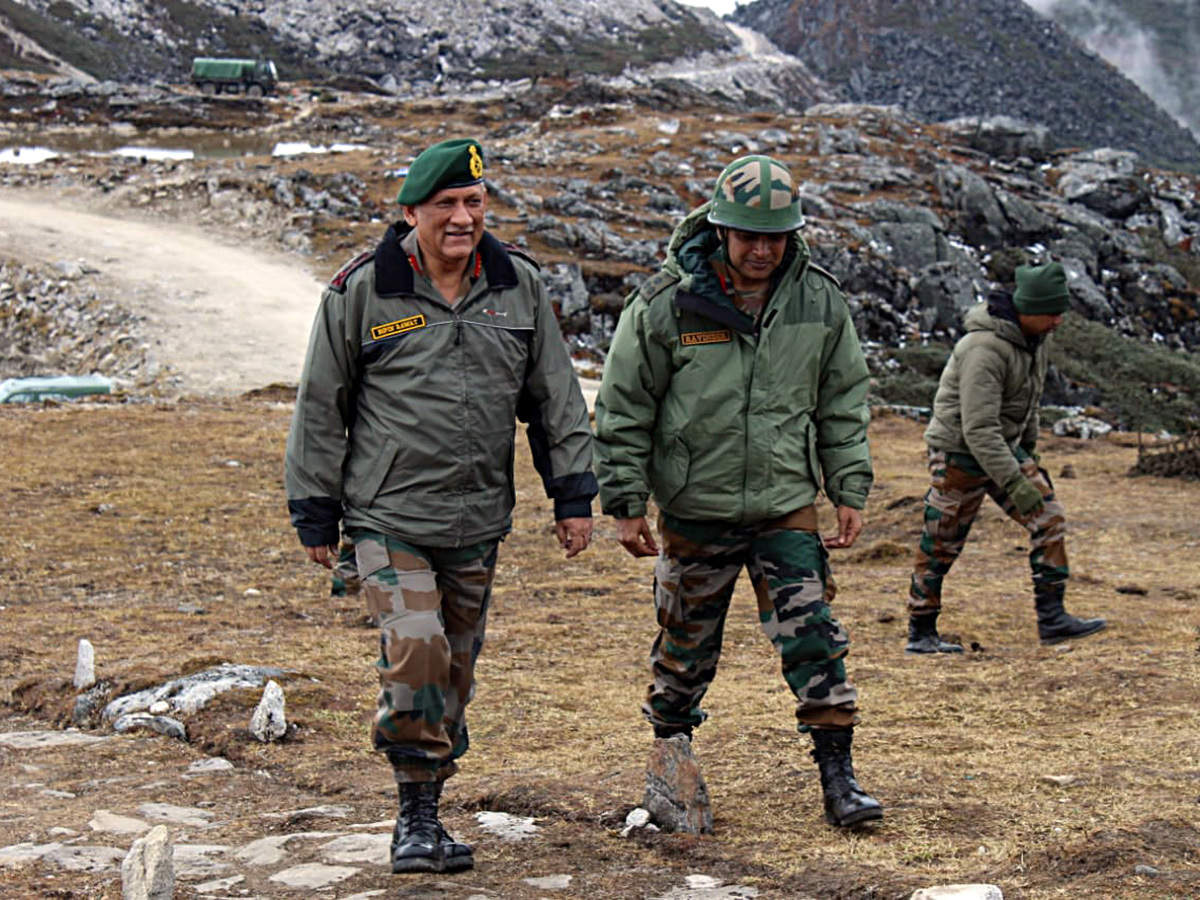Kashmir, In General

Ubaid Majeed is the Editor-in-Chief at the Mountain Ink.
Security apparatus’ Lal Chowk light tribute to the fallen general apart, Bipin Rawat has left behind a competing military strategy being strictly implemented in Kashmir.
Barely some months after the old guards changed with the late Hurriyat headman’s closed door in 2016, two defence doctrines were already in circulation and gaining traction as the new security blueprint of Kashmir.
The “double-whammy” would eventually determine a new combat course in the region awaiting conflict closure for nearly eight decades now.
By endorsing security solution for the political problem, Doval Doctrine and Operation All Out seemingly shadowed the political space of the valley. The twin-tactic made the so-called “defensive offence” as a new strategy to handle the strife zone. One was the brainchild of the former spymaster turned NSA, the other was the vocal call of an Indian army chief.
Much of Bipin Rawat’s Kashmir campaign had to do with his protracted Kashmir posting – during which, as Srinagar-based army commanding officer said in his obituary, “the general became a strategician who had a great ground connect”.
His Baramulla military stint is being credited for “cultivating that ground” and making many of the general “fans” nostalgic about his time in once “getaway/gateway of Kashmir”. Some of the mourners even lit candles and boarded quick flights to Delhi for farewell.
Support Our Journalism
You are reading this because you value quality and serious journalism.
But, serious journalism needs serious support. We need readers like you to support us and pay for making quality and independent journalism more vibrant.

It’s said that Rawat’s highland upbringing in Uttarakhand made him a “countable counterinsurgent” officer in high-altitude warfare.
As a major, he commanded a company in Uri before leading 5 Sector of Rashtriya Rifles in Sopore as brigadier. He was appointed as the 27th chief of the Indian army staff at the fag-end of 2016 when the valley was still witnessing ripples of another seething summer.
Soon after taking his office on 31 December 2016, Rawat sounded more of a political chief, than a traditional Indian military leader. By shedding the old image, the vocal general was apparently competing with his commanding counterpart from the other side.
He set the deadline for stone-pelting, termed Azadi an “illusion” and turned down employment-related concerns of youth in Kashmir.
But it was the “Operation All Out” that literally made him “military-media” in 2017. That year as the Hurriyat camp faced NIA raids and new-age militants got killed in intensified operations, Rawat’s hardpower endorsement became Delhi’s deafening response to Kashmir defiant din.
His remarks resonated regularly in the region when the unholy alliance between PDP and BJP perished in the summer of 2018. The 4-star general’s public statements were literally being followed in letter and spirit by allied forces in Kashmir. That’s why, perhaps, former DG Police SP Vaid asserted after Mehbboba Mufti government collapsed that the power shift has only “freed the hands of forces”.
Later, as India’s first Chief of Defence Staff, Rawat courted controversy when he said that “girls and boys as young as 10 and 12 are now being radicalised” in Kashmir, and that those who are “completely radicalised” need to be “taken out separately” and put in deradicalisation camps.
Instead of stones, he wanted to see guns in Kashmir’s “young and restive” and deal with them in a better manner. He amplified his political pitch by telling Hurriyat to meet the interlocutor.
Despite drawing flak, his statements made him an uncanny newsmaker in town. Many believe that the plain-speaking general suited the mood, morale and media of his times. The general even termed the army as a conflict manager. “The army is the only facilitators for peace in the valley,” he said in 2019.

Days before his death in a copter crash, Rawat remarked that the Article 370-like restrictions are likely to return in Kashmir. Mehbooba Mufti reacted sharply saying that “repression” is the government’s only method to deal with the Kashmir situation.

But with the dragon on the doorstep, the general post-abrogation of Article 370 was quite assertive about the two-front war. At the same time, mindful of his martial image among sizeable Indians, he wanted to mount an American-style offensive on the “terror launch-pads” across the fence.
His military mindset to strengthen internal security only made him a “role-model” for his tribe-members — some of them now holding executive posts in “Naya Kashmir”.
No wonder, IGP Kashmir, Vijay Kumar in his farewell note said the armed forces want to follow the general’s footsteps and fulfil his goals.
Mountain Ink is now on Telegram. Subscribe here.
Become Our Ally
To help us strengthen the tradition of quality reading and writing, we need allies like YOU. Subscribe to us.








